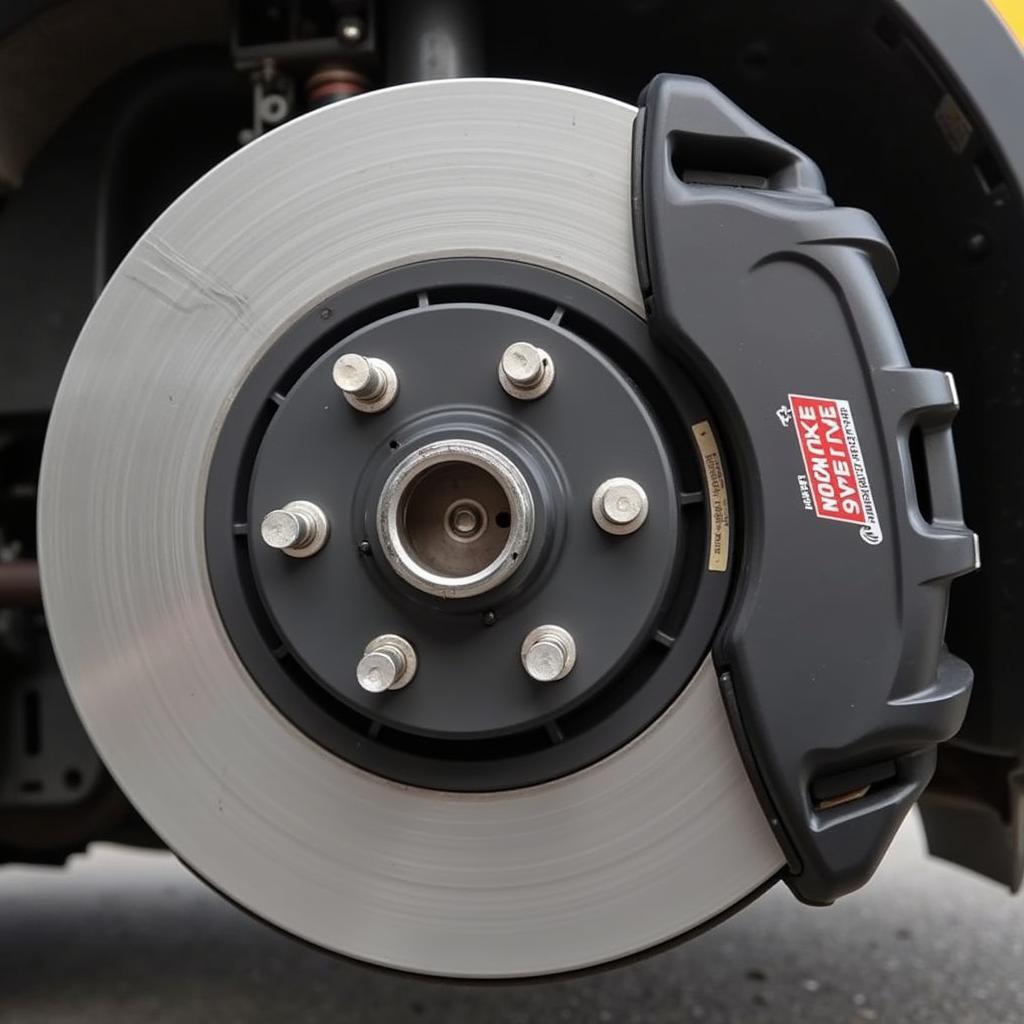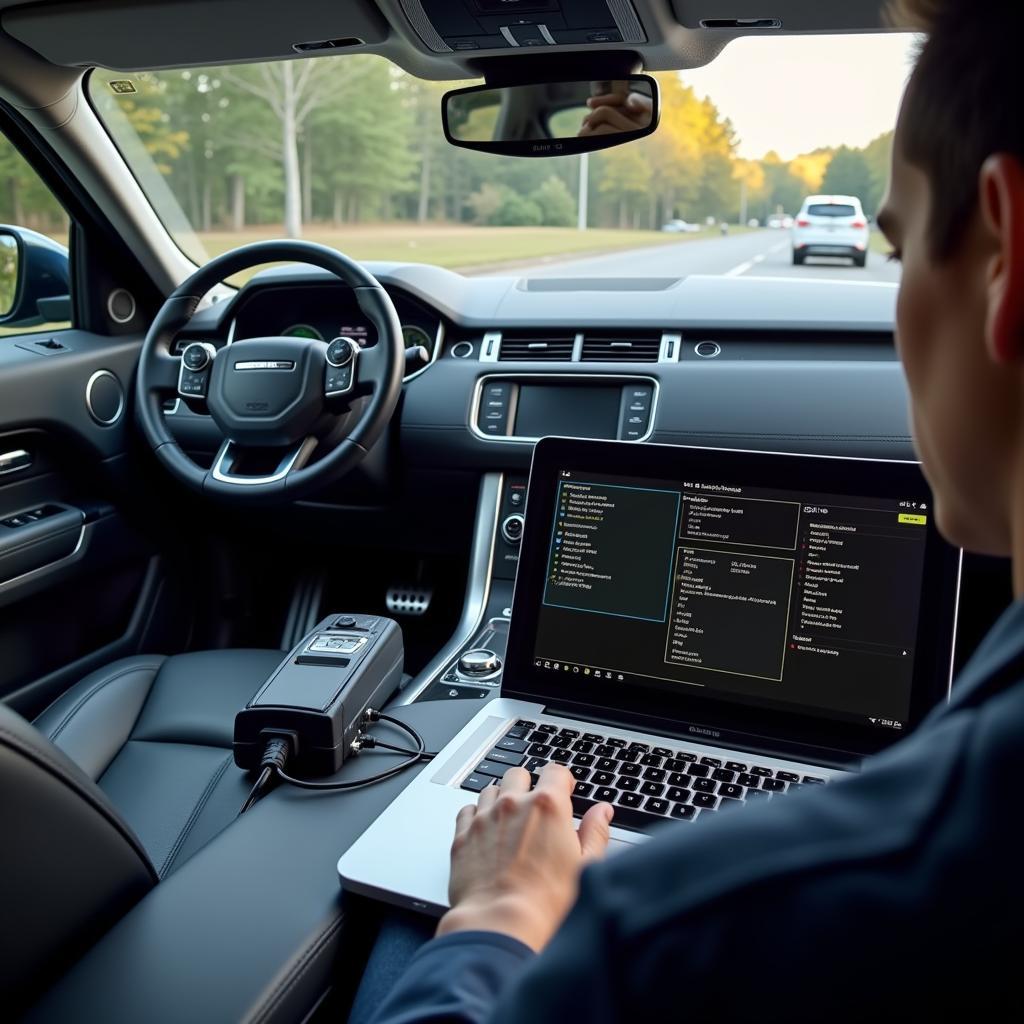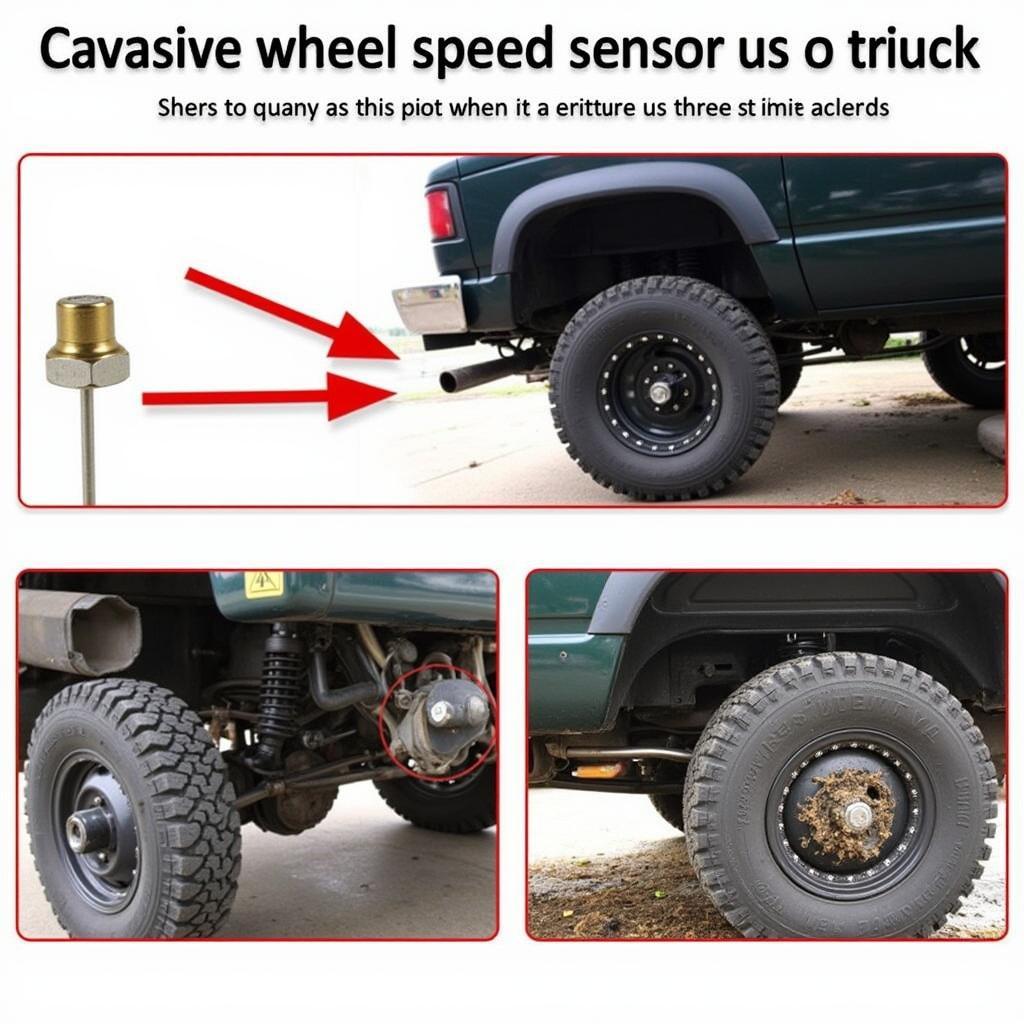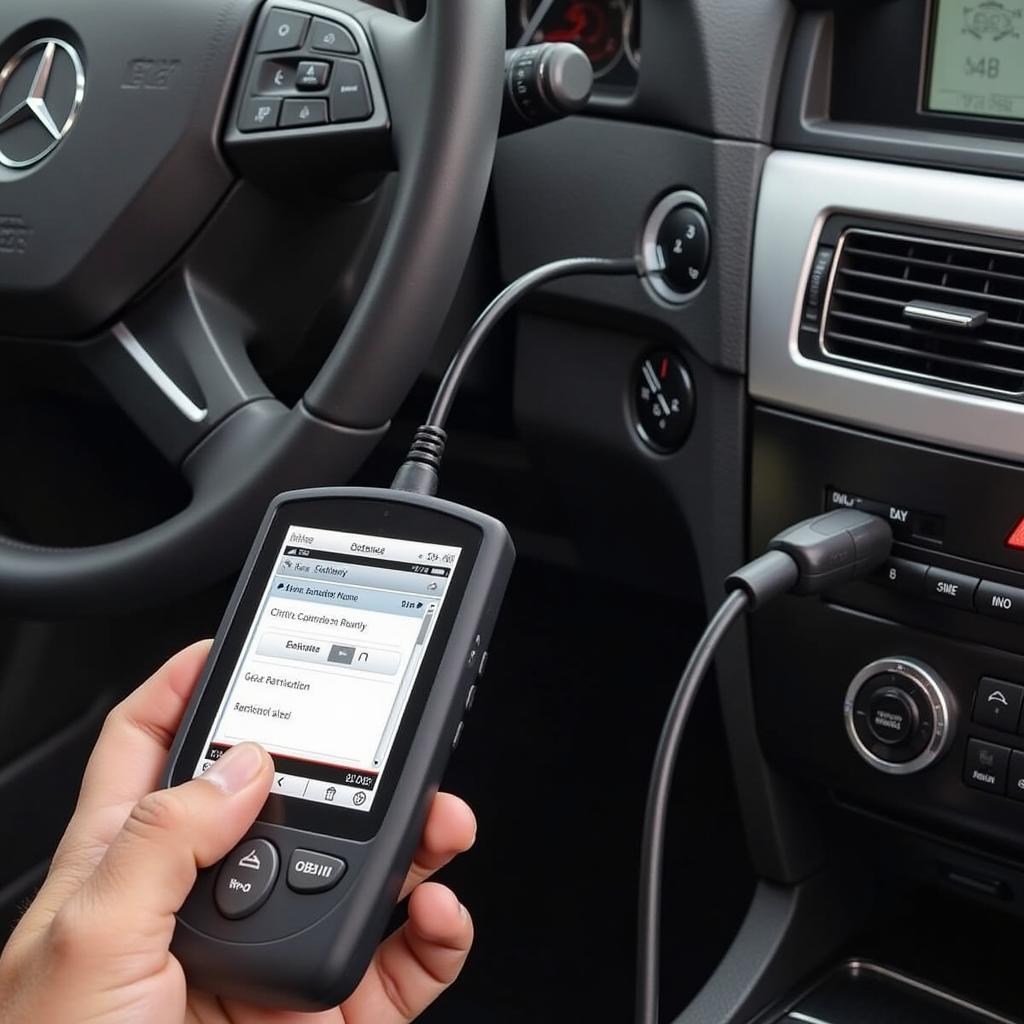The brake pad warning light on your Range Rover Evoque is a crucial safety feature designed to alert you when your brake pads are nearing the end of their lifespan. Ignoring this warning can lead to reduced braking efficiency and potentially dangerous driving situations.
Let’s delve into the common reasons behind this warning light and discuss what steps you can take to address it.
Understanding the Warning Light
The brake pad warning light is typically a yellow or amber circle with parentheses around it and an exclamation point in the center. When illuminated, it signifies that your brake pads have reached a predetermined wear limit, indicating it’s time for an inspection.
Common Causes of a Triggered Warning Light
1. Worn Brake Pads
The most frequent cause of the warning light is simply that your brake pads are worn down. Brake pads are designed to wear down over time due to the friction generated during braking.
Expert Insight:
“Many factors influence brake pad lifespan, including driving style, vehicle usage, and environmental conditions. Frequent city driving with lots of stop-and-go can wear pads faster.” – Mark Jenkins, Senior Automotive Technician
2. Faulty Brake Pad Sensor
Most modern vehicles, including the Range Rover Evoque, are equipped with brake pad wear sensors. These sensors are small metal tabs embedded within the brake pad material. When the pad wears down to a certain point, the sensor comes into contact with the brake rotor, completing a circuit and triggering the warning light. Sometimes, these sensors can malfunction or become damaged, leading to a premature warning.
 Range Rover Evoque Brake Pad Sensor
Range Rover Evoque Brake Pad Sensor
3. Low Brake Fluid Level
While not directly related to brake pad wear, a low brake fluid level can also trigger the brake pad warning light. Brake fluid is essential for transmitting the force you apply to the brake pedal to the brake calipers, which then squeeze the brake pads against the rotors to slow or stop the vehicle. A leak in the brake system can lead to low brake fluid, which will illuminate the warning light.
Expert Insight:
“Never ignore a low brake fluid warning. It indicates a potential leak in your braking system, which needs immediate attention to ensure safe braking performance.” – Sarah Chen, Certified Automotive Engineer
What to Do When the Light Comes On
- Check Your Brake Pads: If you’re comfortable with basic car maintenance, you can visually inspect your brake pads for wear. Look through the spaces between the spokes of your wheels to see the brake pad. You should have at least 1/4 inch of brake pad material remaining.
- Schedule an Inspection: If you’re unsure about the condition of your brake pads or notice any other warning signs like squeaking or grinding when braking, it’s best to schedule an inspection with a qualified mechanic specializing in Range Rover vehicles.
- Don’t Delay Repairs: If your brake pads are worn or any other issue is detected, address it promptly. Driving with worn brake pads compromises your safety and can lead to more extensive and costly damage to your braking system in the long run.
Remote Diagnostics and Software Solutions
In some instances, the brake pad warning light might be triggered by a software glitch or sensor error. At our specialized facility, we offer remote diagnostics and software solutions for Range Rover vehicles. This means we can connect to your vehicle remotely, diagnose the issue, and potentially even reset the warning light if it proves to be a false alarm caused by a software anomaly.
 Range Rover Evoque Remote Diagnostics
Range Rover Evoque Remote Diagnostics
Conclusion
The brake pad warning light in your Range Rover Evoque is a vital safety feature that should never be ignored. By understanding the causes behind this warning light and taking the appropriate actions, you can ensure the optimal performance and safety of your vehicle’s braking system.


